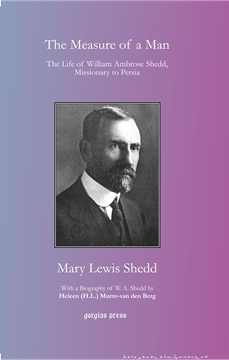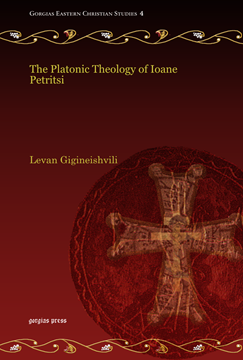An Account of the Massacres of Christians by the Turks in Persia
ISBN: 1-59333-411-7
The Rage of Islam is a chilling account of the massacres that befell the Christians of Persia in 1915. The book provides a good description of the massacres of 1915 from the point of view of a native Assyrian.
$146.00 (USD) $87.60 (USD)
The Life of William Ambrose Shedd, Missionary to Persia
With a Biography of W. A. Shedd by Heleen (H.L.) Murre-van den Berg
ISBN: 1-59333-412-5
This book gives the biography of William Ambrose Shedd (1876-1918), written by Mary Lewis Shedd, the wife of his last years. W. A. Shedd was an American Protestant missionary who was born in Urmia, Iran, and spent most of his life there among the Assyrian Christians of northwestern Iran. He received his education in Princeton.
$157.00 (USD) $94.20 (USD)
The Tragedy of the Assyrians
ISBN: 1-59333-413-3
The Tragedy of the Assyrians depicts the massacres that befell the Assyrians in Iraq in 1933, following their uprooting from their homelands during World War I.
$139.00 (USD) $83.40 (USD)
The History of Yaballaha III and of His Vicar Bar Sauma
Series: Kiraz Chronicles Archive 13
ISBN: 1-59333-414-1
This book gives an introduction and an annotated English translation of the Syriac account of Yaballaha III, Church of the East Patriarch, and his vicar Bar Sauma, the Mongol Ambassador to the Frankish courts at the end of the thirteenth century. The translation is based on Bedjan’s 1895 edition of the Syriac text (also available from Gorgias Press). In addition to the translation, a survey of the Mongols and their relation to the West is given, as well as a brief history of the "Nestorian" Church.
$107.00 (USD) $64.20 (USD)
An Anthology of Syriac Texts
By Anonymous
ISBN: 1-59333-415-X
An anthology of Syriac texts from the Syriac fathers. Each author is first introduced in Syriac, and then excerpts from his writings are given. The texts begin with the Abgar Legend (the Acts of Addai) and end with the writings of the sixteenth century author Abdisho of Jazirah.
$183.00 (USD) $109.80 (USD)
The Platonic Theology of Ioane Petritsi
Series: Gorgias Eastern Christian Studies 4
ISBN: 978-1-59333-395-9
Gigineishvili’s study is a comprehensive exposition of the philosophical system of twelfth-century Georgian Christian Neoplatonist philosopher Ioane Petritsi. Petritsi translated and commented on Proclus’ "Elements of Theology." The translation needed the creation of a philosophic language—a medium for transmitting the extravagant philosophic ideas into Georgian—which Petritsi effectively achieved. Petritsi both explains intricacies of Proclus’ thought and tries to prove the basic affinity between the Platonic and the biblical traditions. Gigineishvili exposes the entire system of Petritsi’s thought on a background of ideas of Proclus, other Neoplatonists, and of the Church Fathers.
$193.00 (USD) $115.80 (USD)





